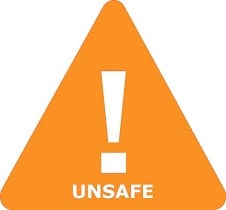Is gamma-Hexachlorcyclohexanum Safe in Breastfeeding
Question
I am a breastfeeding mother and i want to know if it is safe to use gamma-Hexachlorcyclohexanum? Is gamma-Hexachlorcyclohexanum safe for nursing mother and child? Does gamma-Hexachlorcyclohexanum extracts into breast milk? Does gamma-Hexachlorcyclohexanum has any long term or short term side effects on infants? Can gamma-Hexachlorcyclohexanum influence milk supply or can gamma-Hexachlorcyclohexanum decrease milk supply in lactating mothers?
gamma-Hexachlorcyclohexanum lactation summary

- DrLact safety Score for gamma-Hexachlorcyclohexanum is 5 out of 8 which is considered Unsafe as per our analyses.
- A safety Score of 5 indicates that usage of gamma-Hexachlorcyclohexanum may cause serious side effects in breastfed baby.
- Our study of different scientific research indicates that gamma-Hexachlorcyclohexanum may cause moderate to high side effects or may affect milk supply in lactating mother.
- Our suggestion is to use safer alternate options rather than using gamma-Hexachlorcyclohexanum .
- It is recommended to evaluate the advantage of not breastfeeding while using gamma-Hexachlorcyclohexanum Vs not using gamma-Hexachlorcyclohexanum And continue breastfeeding.
- While using gamma-Hexachlorcyclohexanum Its must to monitor child for possible reactions. It is also important to understand that side effects vary largely based on age of breastfed child and time of medication in addition to dosage.
- Score calculated using the DrLact safety Version 1.2 model, this score ranges from 0 to 8 and measures overall safety of drug in lactation. Scores are primarily calculated using publicly available case studies, research papers, other scientific journals and publically available data.
Answer by Dr. Ru: About gamma-Hexachlorcyclohexanum usage in lactation
Insecticide and scabicide drug of great liposolubility. It is a extensively absorbed through skin, thus, it is not recommended to be used in newborns or infants younger than 2 months. When used in the mother, cleanse the breast thoroughly.
Answer by DrLact: About gamma-Hexachlorcyclohexanum usage in lactation
Topical application of gamma-Hexachlorcyclohexanum can increase gamma-Hexachlorcyclohexanum milk levels for at least several days. Because it is potentially toxic in infants, is a persistent environmental contaminant, and possibly has estrogenic effects that could decrease lactation as well as affect the nursing infant, another agent is preferred.[1][2][3][4]
gamma-Hexachlorcyclohexanum Side Effects in Breastfeeding
In a telephone follow-up study, 9 mothers used gamma-Hexachlorcyclohexanum topically for head lice during breastfeeding. One reported irritability in her breastfed infant.[8]
gamma-Hexachlorcyclohexanum Possible Effects in Breastfeeding
Hexachlorocyclohexane appears to have some estrogenic activity which could suppress lactation.[6]
Alternate Drugs
Clarithromycin(Safe)
Praziquantel(Safe)
Oxiconazole(Safe)
Ciprofloxacin(Safe)
Azithromycin(Safe)
Methicillin(Low Risk)
Nitazoxanide(Safe)
Cefdinir(Safe)
Ritonavir(Unsafe)
Tetracycline(Safe)
Naftifine(Safe)
Cephradine(Safe)
Atovaquone(Low Risk)
Abacavir(Safe)
Meropenem(Safe)
Rifaximin(Safe)
Mebendazole(Safe)
Cefazolin(Safe)
Streptomycin(Safe)
Ciclopirox(Safe)
Cephalexin(Safe)
Linezolid(Low Risk)
Acyclovir(Safe)
Roxithromycin(Safe)
Oseltamivir(Safe)
Loracarbef(Safe)
Colistimethate(Safe)
Cefadroxil(Safe)
Nevirapine(Low Risk)
Butoconazole(Safe)
Cefuroxime(Safe)
Chloramphenicol(Unsafe)
Lomefloxacin(Low Risk)
Tinidazole(Safe)
Cefaclor(Safe)
Nelfinavir(Unsafe)
Procaine Penicillin G(Safe)
Telithromycin(Unsafe)
Ceftriaxone(Safe)
Quinine(Safe)
Levofloxacin(Low Risk)
Sulfasalazine(Safe)
Piperacillin(Safe)
Albendazole(Safe)
Kanamycin(Safe)
Metronidazole(Safe)
Ceftibuten(Safe)
Pyrimethamine(Safe)
Amantadine(Low Risk)
Bacampicillin(Safe)
Lamivudine(Safe)
Penicillin V(Safe)
Salicylic Acid(Safe)
Ceftazidime(Safe)
Dapsone(Low Risk)
Valganciclovir(Low Risk)
Aztreonam(Safe)
Indinavir(Unsafe)
Penicillin G(Safe)
Ivermectin(Safe)
Cefprozil(Safe)
Capreomycin(Low Risk)
Mefloquine(Safe)
Ganciclovir(Low Risk)
Gentamicin(Safe)
Sulfamethoxazole(Safe)
Ampicillin(Safe)
Oxytetracycline(Safe)
Ertapenem(Safe)
Econazole(Safe)
Gatifloxacin(Low Risk)
Sulfisoxazole(Safe)
Malathion(Low Risk)
Cefoxitin(Safe)
Zidovudine(Low Risk)
Hydroxychloroquine(Safe)
Enoxacin(Low Risk)
Vancomycin(Safe)
Amoxicillin(Safe)
Ofloxacin(Safe)
Lindane(Unsafe)
Cefotetan(Safe)
Secnidazole(Safe)
Doxycycline(Low Risk)
Penciclovir(Safe)
Emtricitabine(Safe)
Norfloxacin(Safe)
Cefotaxime(Safe)
Tenofovir(Safe)
Chloroquine(Safe)
Teicoplanin(Safe)
Tioconazole(Safe)
Famciclovir(Low Risk)
Amikacin(Safe)
Efavirenz(Unsafe)
Neomycin(Safe)
Trovafloxacin(Unsafe)
Fusidic Acid(Safe)
Terconazole(Safe)
Dicloxacillin(Safe)
Erythromycin(Low Risk)
Didanosine(Unsafe)
Nafcillin(Safe)
Permethrin(Safe)
Cefixime(Safe)
Tobramycin(Safe)
Paromomycin(Safe)
Sulconazole(Safe)
Demeclocycline(Low Risk)
Clindamycin(Low Risk)
Floxacillin(Safe)
Moxifloxacin(Low Risk)
Cefepime(Safe)
Saquinavir(Unsafe)
Ticarcillin(Safe)
Polymyxin B(Safe)
Cloxacillin(Safe)
Primaquine(Low Risk)
Nitazoxanide(Safe)
Atovaquone(Low Risk)
Mebendazole(Safe)
Quinine(Safe)
Albendazole(Safe)
Pyrimethamine(Safe)
Ivermectin(Safe)
Mefloquine(Safe)
Pyrantel(Safe)
Malathion(Low Risk)
Hydroxychloroquine(Safe)
Lindane(Unsafe)
Benznidazole(Safe)
Chloroquine(Safe)
Permethrin(Safe)
Primaquine(Low Risk)
Praziquantel(Safe)
Ivermectin(Safe)
Malathion(Low Risk)
Lindane(Unsafe)
Permethrin(Safe)
